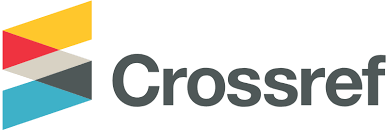AN ANALYSIS OF LEARNING ACTIVITIES FOR PROBLEM-BASED LEARNING IN THE PROCEDURE TEXT LESSON PLAN
Keywords:
Learning Activities, Problem-Based Learning, Procedure Text, Lesson PlanAbstract
It has been a big issue that the quality of teacher candidates or teachers in Indonesia in conducting learning activities in lesson plans. This research aims to analyse the appropriateness between main learning activities with the syntax of problem-based learning and student worksheet. There are five syntaxes which analysed in this research including student orientation to the problem, organizing students, individual and group research guide, development and presenting the work, and analyse and evaluate the problem-solving process. This study employed descriptive qualitative method. The data was the procedure text lesson plan designed by English teacher from senior high school. The data were collected using observation sheet. Data reduction, data display, and conclusion drawing were used to analyse this research data. The findings of this research reveal that teacher creates systematically main learning activities which is required the core of each syntax of problem-based learning. In addition, the main learning activities had implemented student-centered learning through interactive questions and answers, individual assignments, pair assignments and group discussion. It also finds that teacher conducted student’s worksheet which is in accordance with the learning activities and served actual or daily context of situations being discussed as the point of Problem-based Learning model.
References
Agustina, K., Kristiyanto, H. W., & Noviandini, D. (2017). Learning Design of Problem Based Learning Model Based on Recommendations of Sintax Study and Contents Issues on Physics Impulse Materials with Experimental Activities. In International Journal of Active Learning (Vol. 2, Issue 2). http://journal.unnes.ac.id/nju/index.php/ijal
Akhir, M., Siburian, J., & Effendi, M. H. (2023). A Study Comparison the Application of Discovery Learning and Problem Based Learning Models on the Critical Thinking Ability. Integrated Science Education Journal, 4(2), 84–89. https://doi.org/10.37251/isej.v4i2.390
Anggraena, Y., Ginanto, D., Felicia, N., Andiarti, A., Herutami, I., Alhapip, L., Iswoyo, S., Hartini, Y., & Mahardika, R. L. (2022). Pembelajaran dan Asesmen.
Anggraeni, D. M., Prahani, B. K., Suprapto, N., Shofiyah, N., & Jatmiko, B. (2023). Systematic review of problem based learning research in fostering critical thinking skills. Thinking Skills and Creativity, 49, 101334. https://doi.org/10.1016/j.tsc.2023.101334
Arends, R. I. (2012). Learning to Teach (9th ed.). McGraw-Hill Companies, Inc.
Aulia, R. W. (2021). Teachers’ Perception on The New Policy Called Merdeka Belajar; a Page of Lesson Plan. 14, 2. https://doi.org/10.21776/ub.Educafl.2018.001.01.05
Bahar, Wibawa, B., & Situmorang, R. (2019). USING PROBLEM-BASED LEARNING TO TEACH SOFTWARE MODELING IN INFORMATION TECHNOLOGY COLLEGES IN INDONESIA: A CONCEPT. Unnes Science Education Journal, 8(2). http://journal.unnes.ac.id/sju/index.php/usej
Bilgin, I., Şenocak, E., & Sözbilir, M. (2009). The Effects of Problem-Based Learning Instruction on University Students’ Performance of Conceptual and Quantitative Problems in Gas Concepts. Eurasia Journal of Mathematics, 5(2), 153–164.
Cicek, V. (2013). Effective Use of Lesson Plans to Enhance Education. International Journal of Economy, Management, and Social Sciences, 2(6), 334–341.
Creswell, J. W., & Creswell, J. D. (2018). Research Design. In Sage Publication. SAGE Publication.
Hasyim, M. Y. A. (2021). The Effectiveness of Problem-Based Learning on Advanced Reading Comprehension Skill in Online Arabic Language Teaching. LISANIA: Journal of Arabic Education and Literature, 5(1), 1–18. https://doi.org/10.18326/lisania.v5i1.1-18
Hsieh, H. F., & Shannon, S. E. (2005). Three approaches to qualitative content analysis. Qualitative Health Research, 15(9), 1277–1288. https://doi.org/10.1177/1049732305276687
Ichsan, M., Lestari, L. A., & Suharsono. (2017). LESSON PLANS AND THEIR IMPLEMENTATION IN THE CLASSROOM (A CASE STUDY OF TWO TEACHERS). 2017 International Conference on Education and Science.
Mahardika, A., Afriyanti, R., & Siska. (2023). SELF DIRECTED LEARNINGPADA MODUL AJAR DIDESAIN OLEH GURU PENGGERAK. EduCurio Journal, 1(2), 378–383.
Miles, M. B., & Huberman, A. M. (1994). Qualitative Data Analysis. SAGE Publications.
Nurcahyo, A. D., & Winanti, E. T. (2021). Pengaruh model Problem Based Learning terintegrasi pendekatan induktif terhadap kemampuan berpikir spasial dan pengetahuan siswa pada materi mitigasi bencana. Jurnal Pendidikan Geografi, 26(1), 41–47. http://journal2.um.ac.id/index.php/jpg/
Nurhalimah, M. (2023). Upaya Peningkatan Keaktifan Belajar Peserta Didik Menggunakan Model Problem Based Learning (PBL) dengan Strategi Berdiferensiasi. Ideguru: Jurnal Karya Ilmiah Guru, 8(3). https://doi.org/10.51169/ideguru.v8i3.624
Rahman, F., Nugraha, N., & Sudarmiani, S. (2020). APPLICATION OF PROBLEM BASED LEARNING (PBL) MODEL BY MICROSOFT POWER POINT MEDIA TO IMPROVE ACTIVITIES AND RESULTS OF LEARNING SOCIAL SCIENCE OF SMP in MADIUN. Social Sciences, Humanities and Education Journal (SHE Journal), 1(2), 1. https://doi.org/10.25273/she.v1i2.6620
Rofieq, A., Latifa, R., Susetyarini, E., & Purwatiningsih, P. (2019). Project-based learning: Improving students’ activity and comprehension through lesson study in senior high school. JPBI (Jurnal Pendidikan Biologi Indonesia), 5(1), 41–50. https://doi.org/10.22219/jpbi.v5i1.7456
Rusmawan, N. P. (2018). CONDUCTING TEACHING ACTIVITIES IN JUNIOR HIGH SCHOOL BY NOT PROVIDING AN OFFICIAL DOCUMENT OF LESSON PLAN.
Safi’i, I., Wahdini, L., & Warpitasari, R. (2023). Measuring Teacher’s Competency in Describing Student Activities in Learning with Problem Based Learning. JPI (Jurnal Pendidikan Indonesia), 12(1), 89–96. https://doi.org/10.23887/jpiundiksha.v12i1.51910
Saifuddin, M. (2014). REPUTABLE TEACHER’S DEVELOPING LESSON PLAN AND ITS IMPLEMENTATION IN THE CLASSROOM.
Shava, G. N., Hleza, S., Tlou, F. N., & Shonhiwa, S. (2021). Qualitative Content Analysis. In International Journal of Research and Innovation in Social Science. www.rsisinternational.org
Sherly, Dharma, E., & Sihombing, H. B. (2020). MERDEKA BELAJAR: KAJIAN LITERATUR. Konferensi Nasional Pendidikan I.
Simamora, R. E., Dewi, R. S., & Surya, E. (2017). Improving Learning Activity and Students’ Problem Solving Skill through Problem Based Learning (PBL) in Junior High School. Article in International Journal of Sciences: Basic and Applied Research, 33(2), 321–331. http://gssrr.org/index.php?journal=JournalOfBasicAndApplied
Sufyadi, S., Lambas, Rosdiana, T., Rochim, F. A. N., Novrika, S., Iswoyo, S., Hartini, Y., Primadonna, M., & Mahardhika, R. L. (2021). Panduan Pembelajaran dan Asesmen.
Suharto, V. T., Waraulia, A. M., & Hermayani, T. (2020). The implementation of innovative learning models and based hots scientific approach on lesson plan of Indonesian language at schools. Journal of Physics: Conference Series, 1464(1). https://doi.org/10.1088/1742-6596/1464/1/012023
Syarifuddin, A. (2011). PENERAPAN MODEL PEMBELAJARAN COOPERATIVE BELAJAR DAN FAKTOR-FAKTOR YANG MEMPENGARUHINYA. Ta’dib, 16(1).
Tricahyati, S., & Zaim, M. (2023). English Teachers’ Readiness in Implementing of “Merdeka Belajar” Curriculum in Teaching English at Junior High School in Padang. Journal of English Language Teaching, 12(1), 97–105. https://doi.org/10.24036/jelt.v12i1.121783
Warsito, Y. A. (2018). THE EFFECT OF PROBLEM BASED LEARNING TO IMPROVE STUDENT’S SPEAKING ABILITY ON ENGLISH EDUCATION PROGRAM STKIP KIERAHA TERNATE. Langua-Journal of Linguistics, Literature, and Language Education, I(1).
Yunita, L., & Widodo, H. (2023). THE IMPLEMENTATION OF MERDEKA CURRICULUM IN ISLAMIC EDUCATION LEARNING AT SMK MUHAMMADIYAH LUMAJANG. Jurnal Pendidikan Islam, 12(1), 103–112. https://doi.org/10.29313/tjpi.v12i1.11287
Downloads
Published
How to Cite
Issue
Section
License
Copyright (c) 2023 PRIMER : Jurnal Ilmiah Multidisiplin

This work is licensed under a Creative Commons Attribution-ShareAlike 4.0 International License.








